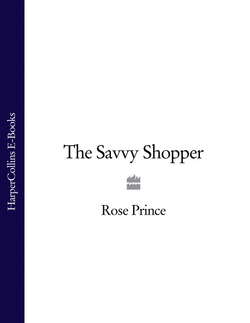Читать книгу The Savvy Shopper - Rose Prince - Страница 11
Organic versus conventional
ОглавлениеOrganic is a great standard, especially when a producer has Soil Association accreditation, the most stringent in Europe. But conventional can mean high standards, too. It depends on the producer, and that is why buying food is a confusing business. A farmer might produce food responsibly but prefer not to go through organic conversion, which can be an expensive investment.
The organic movement (specifically the Soil Association in the UK) was founded on the principle of the holistic benefits of ‘soil health’. It recognises a connection between human health and that of the soil. Organic crops grow in healthy soil fertilised with natural manures. Organically reared livestock are naturally fed on organically grown feed and standards of welfare are exceptionally high. But is this better than a responsible conventional farmer?
I have visited farms where enormous care is taken to prevent animal and plant disease through good husbandry, but which are not organic. They keep hedgerows, leave buffer zones between crops and hedges and, like organic farmers, will not spray unless absolutely necessary. I know farmers who care for their livestock, stock them loosely, give them proper shelter and plenty of water, and grow all their feed. Their animals are rarely ill or stressed and are totally traceable – but they are not organic. Some of the best cheeses, hams and even potato crisps in the UK are made by responsible, non-organic farmers.
Other conventional farmers blindly use every pesticide available to them, intensively rear animals in cruel systems and think only of the margins at the end of the day. The problem is that both types of conventional farmer dislike being put down as a bad farmer, even though only one has some justification in feeling this way. So organic standards get attacked – particularly, to my amazement, by the authorities. The Food Standards Agency, of all people, does not accept that the organic standard is one to strive for.
For shoppers, the problem is not how to choose organic food – if it has a Soil Association or other British organic logo, you can more or less rest assured – the real task is picking good conventional food out from the bad.
Organic always costs more. This is related to higher labour costs, slower growth rate of both livestock and plants, lower yields and the higher cost of ingredients in naturally processed foods. The only time I am wary of the pricing is when farm-gate prices of organic food match that of the same food in London shops. Sales at the farm gate should be cheaper than those that have gone through any middle man.
